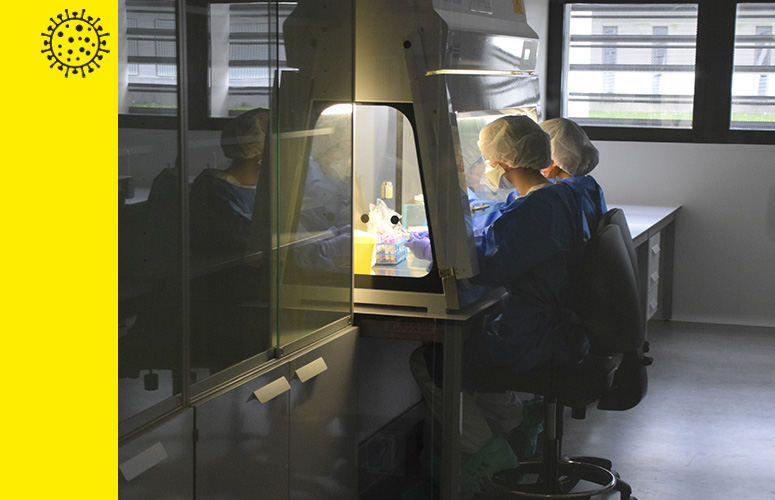Basque scientists validate alternative RT-PCR test for COVID-19 detection
Researchers from the University of the Basque Country (UPV/EHU), Ikerbasque, Achucarro and the Biofisika Bizkaia Foundation, in collaboration with Osakidetza, the Basque Public Health Service, are participating in the project
- News
First publication date: 08/04/2020

This reliable, rapid test does not require commercial kits and should therefore remain unaffected by supply problems affecting other tests
A network of scientists from various UPV/EHU departments, Ikerbasque, Achucarro and the Biofisika Bizkaia Foundation, together with research personnel from the BioCruces and Bioaraba Institutes, have managed to fine-tune an RT-PCR test designed to detect COVID-19, which could allow the Basque system to increase the number of diagnostic tests in line with WHO recommendations. The PCR is a technique designed to amplify minute quantities of genetic material, in this case of the virus. In its RT-PCR variant it allows a quantitative detection of this genetic material to be made and thus makes it possible to discriminate between those infected and those who are virus-free.
The work to implement this project began during the first week of the lockdown and has been conducted at an astonishing pace. After intensely reviewing the published articles and holding numerous online discussions, a group of 55 researchers came up with an action plan that has received the UPV/EHU’s institutional backing. During the second week, 6 biological containment and safety labs were fitted out in record time at the UPV/EHU’s María Goyri Centre for Biotechnology in the Leioa-Erandio Area, in addition to processing all the necessary legal requirements.
The first samples already diagnosed by Osakidetza arrived on 27 March via the Basque Biobank (Basque Foundation for Health Innovation and Research). Having managed to optimize the protocols in just 10 days, the detection test has turned out to be 100% specific and 92% sensitive. Sensitivity indicates the capacity to detect positive cases, while specificity reflects how reliable the test is in identifying as negative those individuals who are not infected.
The cost of the detection test developed by this inter-institutional working group would be about €15 per sample, and it would take less than 4 hours to be run. Such an affordable cost as this has been made possible by the altruistic contribution of the people and organisations participating in the work. It could also be conducted in numerous labs of other research centres here in the Basque Country as well as at the hospitals themselves, should the commercial RT-PCR kits currently being used by Osakidetza be affected by a stock-out.
In the view of the UPV/EHU’s Ikerbasque Research Professor Ugo Mayor, coordinator of this initiative, “the development through auzolan [voluntary work] of this alternative test enhances the importance of research and science as well as the true impact that the latter may have on the wellbeing of society when receiving the corresponding institutional backing”.




